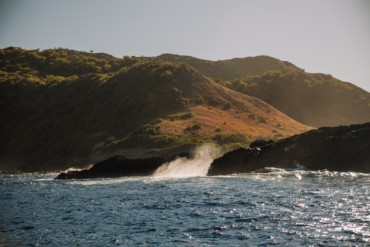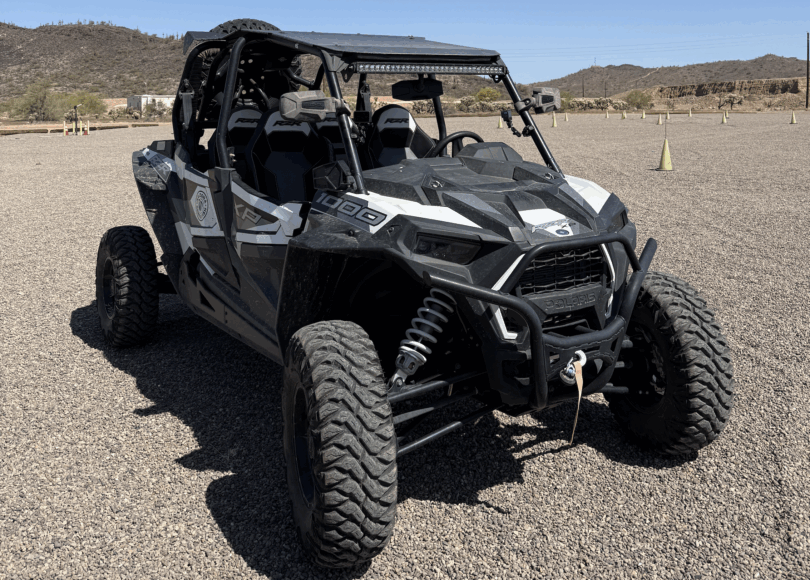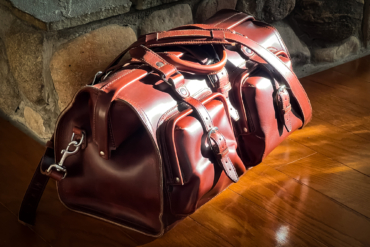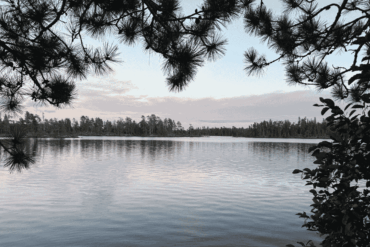Less than a week ago, I was tucked in a sleeping bag next to the Yellowstone River. Today, that campsite is underwater, as is the bridge that stood next to it.
Paradise Valley is a living Montana iconography. On the east side of the valley, the Absaroka Range leans tall and jagged against the skies.
Crest east over their ridges and you’ll find yourself in one of the most pristine wildernesses in the world: the Absaroka-Beartooth Wilderness. It’s 944,000 acres chock full of wild kingdoms, impossibly aquamarine glacial lakes, grizzly bears bumbling through, and bighorn sheep snugged into high rocky outcroppings.
Come back west and you’ll see a valley carved, fed, and tendered by the Yellowstone River — or the Elk River as the Indigenous people of the valley called it.

Drive Highway 89 south toward Gardiner in the crepuscular hours and you’ll understand why.
The open faces of the valley contain herds of thousands of elk that fold into the landscape effortlessly. They bed on hillsides, walk the open agricultural fields, and even nap on the lawns of the homes that edge the river.
It’s not just elk. Bighorns, mule deer, whitetails, moose, black bears, and grizzlies inhabit this place in very visible ways. Birds of all sorts and plant life abound. It’s a place for wildlife to flourish, flora and fauna alike.
And, along the western edge of the Valley, the Gallatin Range finishes the job of tucking the valley in. Electric Peak stands high and mighty over Gardiner, leaving a lasting impression on the visitors of Yellowstone National Park as they come and go. For now, it still holds snow.
This is not a historically uncivilized place; the valley and surrounding landscapes have been continually occupied by humans for more than 11,000 years. Water, game, safe spaces to live, and travel corridors abound. This is an ancient ecosystem, fed by water and tended by humans.
The river is a constant here. It’s the deity that rules the Earth at its banks. Lately, we’ve worried more about its waning than waxing.
On Monday, June 13, it reminded us of its power and it waxed supreme.
Summer 2021: Charred by Flame

I live about 30 minutes north of Livingston and the Yellowstone, in another valley carved by ice and water. Livingston is the closest town with needed amenities to the rural community in which I live.
In March, I stood outside and watched as smoke plumes from fires gone out of control took over a dry landscape thirsty with drought. I wondered if the grass would grow this summer, and more particularly if we were about to have another hay crisis for our livestock.
Or if, like last year, one might be able to walk across the Yellowstone at points that should be filled with water. I’d drive to town for groceries and look at the river with a knot in my stomach, wondering if my guide friends would be able to fish the river this summer, or if our delicate cold-water fishery might survive the shallow warming waters.
Anglers carried thermometers in their pockets for much of the 2021 season, testing temperatures to see if the water was safe to fish. Hoot owl restrictions came into play, locking anglers out for the hours in which the river temperatures would rise. And when hoot owl restrictions weren’t enough, entire sections of rivers were cut off from fishing recreation across Montana.
And beyond the water temperatures, smoke enveloped the state from the first week of July forward. Hazardous breathing conditions made life even more questionable in our first summer back from the pandemic conditions.
The river near my current home went down to zero cubic feet per second — shockingly low, still, and dormant in the summer heat.
Spring 2022: From Fire to Flood
But, the forces of water that came in April and May toppled these worries. Cold, snow, and rain pummeled valleys and mountains alike. The rivers and adjoining streams blew out weeks ago, silty with runoff and powerful in cubic feet per second.
I watched the snowpack graphs rise with an obscene amount of gratitude. Across the state, the mountains filled with snow. Blown-out rivers meant cold, cold water, and a lot of it for the time coming.
That snow would continue to melt alongside the (finally) rising temperatures of Montana’s late spring and summer. It would go gently and typically into the runoff season; it would leave behind a legacy of cold water for the year.
And this cold water offered a reprieve from suspected drought conditions. Fields filled with hay, grass, and crops felt more likely. A break was in the air for our fisheries, and perhaps we’d snag a break from another smokey summer.
Yellowstone River: June 14, 2022

But, on June 13, under exceptional conditions, the water began to rise.
An “atmospheric river” from the Pacific Northwest carried water from the sky to our mountains in a deluge. Four inches of rain fell on the steep Absarokas, and that warmer water carried much of that thick snowpack with it. The combined rush of rain and snowmelt toppled into the rivers with a force that hasn’t been seen for 500 years.
Five hundred years. The last time the river rose like this, Indigenous civilizations were at its banks. It isn’t so long ago, and yet the memories of these floods didn’t carry down the intergenerational lines.
For decades, many have built on the river’s edge, within its seemingly safe floodplains, in places where you could reach the river from a few steps down. Risks and rewards, and for so long, the time of reward stood mighty. The river mostly flowed in a state of gentle repose.
Smaller flood events did happen. In 1918, a flood event wiped out bridges along the Yellowstone. On June 6, 1997, a 100-year flood event pushed the river at Livingston to its record of 10.15 feet.
On June 14, 2022, it hit a new record of nearly 12 feet, with a discharge pushing 60,000 cubic feet per second.
The previous recorded max? 32,800 cubic feet per second in 1974.
The Week Prior in Yellowstone National Park

When my cousins called saying they wanted to go to Yellowstone, my first thought was let’s plan for early June, when the babies are here, a lot of kids are still in school, and the weather (and traffic in the park) isn’t yet abominable.
It’s a time of year to take chances. We can still get snow this early, and clearly, we have. But they booked flights and I held my breath.
The park, though tenuous in history, is a favorite oasis of mine. My favorite way to experience it is by hoofing it into the backcountry with a pack on and leaning into the wonders far from the roads. I’ve fished for native cutthroat trout, packed in with llamas, encountered many a bear, and hammocked alone in the quiet of the Yellowstone that lives at least 10 miles from any road. It is, suffice to say, epic back there.
That wasn’t this trip. This was sightseeing for 2 days in the park, and for those 2 days, the weather was phenomenal. We saw Old Faithful, the Grand Canyon of Yellowstone, Grand Prismatic, paint pots, and the kinds of places that only exist when you’re less than a mile from the Earth’s crust. I tend to forego these tourist stops, but seeing them again still inspires awe. And it’s way more fun to see with family members putting eyes on them for the first time.
My older cousin stayed at a hotel in Gardiner, and my younger cousin, mom, nephew, and I camped out just north of Yankee Jim Canyon at the Carbella campsite at the mouth of Tom Miner Basin. The Yellowstone ripped by but remained in its banks; it was of no worry to us.
We ate marshmallows, sat around the fire, and took it all in.
Lamar, the Beartooths, and Spring Babies Aplenty

On the final day in the park, I took them through Lamar Valley. To me, this is the crown gem of Yellowstone. It’s one of the final remnants of the once-massive American Serengeti, rife with wildlife and views and the kind of hikes I love the most.
We traveled out of the park, through Silver Gate and Cooke City, and up the Beartooth Highway where we found ourselves on a road with snow banks 20 feet high in spots. I stopped for lunch at a dispersed campsite and we picnicked with views of the Beartooth herself.
The trip finished with a helluva bag of sightings. A young grizzly grazed about 20 yards from the car. Multiple black bears bustled around, and a momma with cubs of the year made an appearance. The “red dog” bison calves played and frolicked, pronghorn babes scooted at the legs of their mamas, and we caught a pair of teeny tiny elk twins barely at the hocks of a protective mother as a grizzly hung nearby, awaiting an edible moment.
We wove home down the road from Mammoth into Gardiner, and in those last few minutes of our time in Yellowstone, we spotted a lone bighorn ewe at the edge of the high horizon. She was easy to miss against the tawny-brown cliffs. But there she was, a proper sentinel saying goodbye. The Gardner River to our left, the cliffs to our right.
We drove into town with a sense of completion.
The Past Few Days

The stark contrast between last week’s travels to today’s tribulations brings to mind the Buddhist cornerstone of impermanence.
“Whatever has the nature of arising has the nature of ceasing,” the Buddha said. And here my community sits in concert with a river risen. A lesson in opposites.
The past 2 days, I’ve hauled potable water and drinks to friends and strangers, pulled swing sets from standing water, and driven through still water in places I’ve never seen it. I hugged strangers that lamented about their lack of flood insurance, and who would need it that far from the river anyway?
Others filled sandbags and took in evacuated families. With the water receding, cleanups are beginning and social media is an endless source of what I might call civilian journalism. The community continues to document safety issues, damage, and loss of roadways, bridges, homes, and businesses.
News travels fast through these channels, and gratefully, I wonder if this kept the community safe. Currently, no documented deaths — or even serious injuries — are attributed to the flood itself. Eighty-seven rescues, including swiftwater, somehow occurred without incident.
An Aftermath to Come

The campsite I stayed at last week is likely wiped out, and the Carbella Bridge we could see from our tents is now gone. Stunning footage shows the steel girders of Carbella being ripped from its piles by thick rushing water. The steel folded as easily as paper origami. Where it went, no one is yet sure.
Beyond that, entire homes and businesses toppled from the river’s edge into fast-moving waters. The winding road from Mammoth to Gardiner is wiped out where we saw the bighorn, and in many other places.
It’s not just the Yellowstone that flooded, either. The southwest side of the Beartooth Highway I traveled last Friday is ravaged, and the small town of Silver Gate remains inaccessible to anything but helicopters due to roads washed out by the insane rate of water coming down those mountains.
The northeast side of the Absarokas saw major flooding in the Stillwater River and Red Lodge. Small towns like Nye, Fishtail, and Absarokee are also in emergency situations.
And now, the city of Billings is facing its highest floodwaters on record, with 16 feet of water flowing through. The city’s water treatment plant shut down, and residents were asked to have a 24- to 36-hour supply of potable water on hand.
Humans aren’t the only lives displaced. Black bears, elk calves, deer fawns, and other wildlife have been cut off by the rising river. And what of the fish? It’s one thing to look at the raging river as the path of destruction, but it’s another to see it as the home to a treasured fishery.
Economies dependent on calmer waters run on rails in these communities — from the east side to the park and up to Livingston and over to Billings and beyond— and after a global pandemic drying out travel, things were looking to be on the up and up for tourism this summer.
What Happens Now?

For now, we hold our breaths.
Snowpack is still high in the mountains, and incoming hot temperatures are likely to cause our swollen rivers to swell and recede as the snow continues to head to lower elevations. This likely means more flooding will occur, though hopefully at much lower rates than recent peaks.
My beloved northern loop of Yellowstone is likely closed into 2023, with entire roadways washed into rivers, and rockslides and mudslides taking out the curves I’ve traveled so many times.
Currently, all the national forests adjacent to the flooding are closed for any and all recreation through June 24. This includes the Gallatin Range, the Absaroka-Beartooth Wilderness, and the Crazy Mountains. The absentee governor has issued a state of disaster emergency for Stillwater, Park, and Carbon counties, with FEMA soon to be involved.
We don’t yet know the dollar amounts for the infrastructure that needs to be both rebuilt and even rerouted in some places. Many don’t yet know what damage their homes or businesses have truly sustained.
But I know this much: the community rose up as quickly as the water did.
And as it recedes, the community will continue to rise up and take care of its own.







